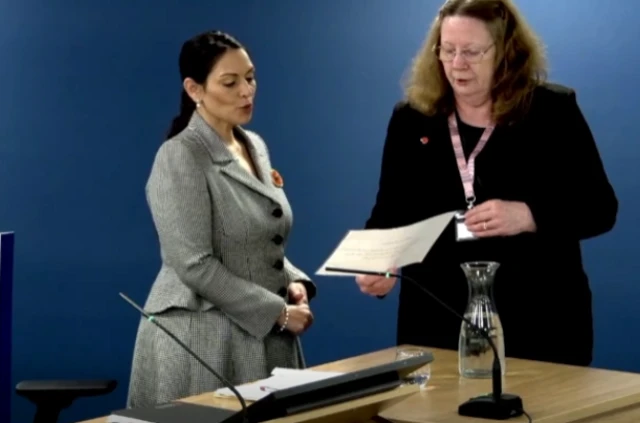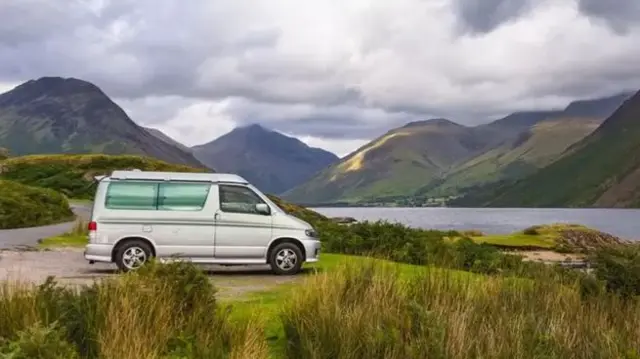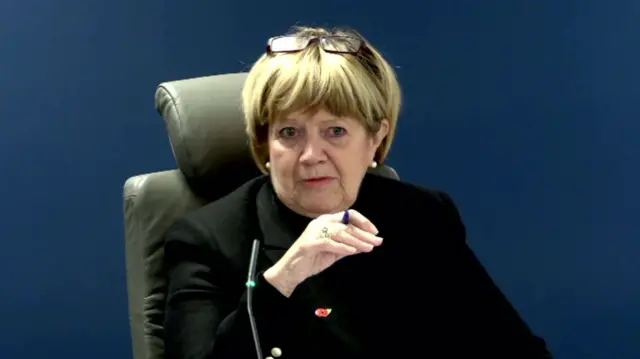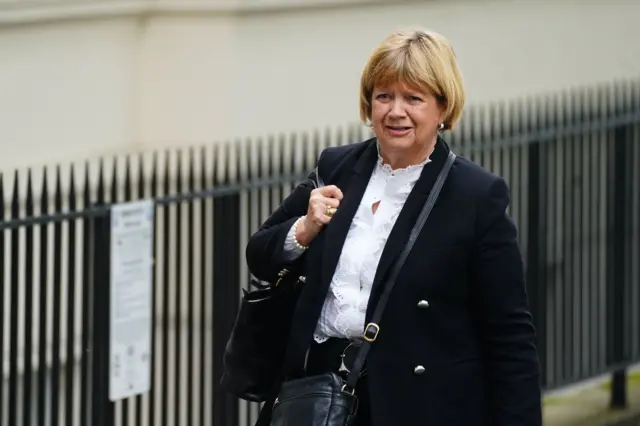Hearing pauses for lunchpublished at 13:09 GMT 9 November 2023
The hearing has now paused for a lunch break and will resume at 13:50. We'll have more to bring you from the evidence former Home Secretary Priti Patel gave the inquiry in the last 15 minutes.
We'll also provide a recap of the key things we heard this morning.



